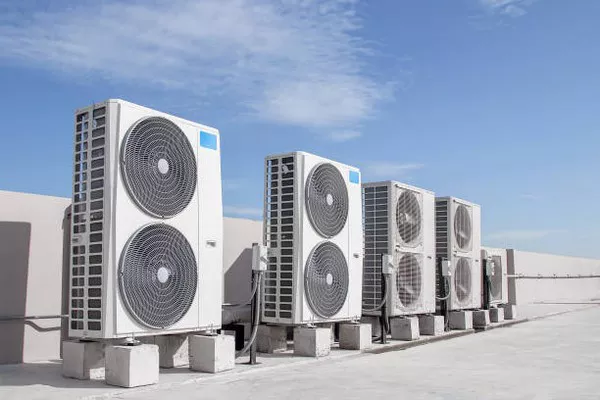Compressors play a crucial role in various industries, from manufacturing and construction to refrigeration and air conditioning. These mechanical devices are designed to increase the pressure of gases or air, making them indispensable in numerous applications. As a significant investment for businesses, it’s essential to understand how long a compressor should last and the factors that influence its lifespan. In this article, we will explore the key considerations that determine the longevity of a compressor.
Quality of Construction
The quality of a compressor’s construction is arguably the most critical factor in determining its lifespan. Compressors come in various grades, from consumer-grade to industrial-grade. Industrial-grade compressors are built with superior materials and precision engineering to withstand heavy usage and demanding conditions. These compressors often last longer, sometimes decades, when properly maintained.
Consumer-grade compressors, on the other hand, are designed for lighter, occasional use. While they may be more affordable upfront, they typically have a shorter lifespan, ranging from a few years to a decade. Therefore, it’s crucial to choose a compressor that aligns with your specific needs and usage requirements to maximize its lifespan.
Maintenance and Care
Regular maintenance and proper care are paramount to extending the life of any compressor. Neglecting maintenance can lead to premature wear and tear, reducing its lifespan significantly. Routine maintenance tasks include checking and changing oil, cleaning air filters, inspecting belts and hoses, and ensuring proper ventilation for cooling.
Furthermore, following the manufacturer’s recommended maintenance schedule is essential. It’s also advisable to keep a detailed maintenance log to track the history of servicing and identify any patterns of issues that may need attention. Well-maintained compressors can often last well beyond their expected lifespan.
Operating Conditions
The environment in which a compressor operates greatly affects its longevity. Compressors subjected to harsh conditions such as extreme temperatures, humidity, or exposure to corrosive materials will wear out faster than those operating in more controlled environments. For example, a compressor used in a dusty construction site will likely have a shorter lifespan than one used in a clean, climate-controlled facility.
To maximize a compressor’s life, it’s essential to assess its operating conditions and take steps to mitigate any adverse effects. This may include providing proper ventilation, protecting the compressor from moisture and contaminants, and maintaining stable temperature and humidity levels.
Load and Duty Cycle
The load and duty cycle of a compressor refer to how frequently and intensely it is used. Compressors that operate continuously or under heavy load will experience more stress and wear compared to those used intermittently or at lower capacities. Industrial compressors, designed for continuous operation, tend to have longer lifespans when operated within their rated capacity.
Using a compressor within its specified duty cycle is crucial. Running a compressor beyond its intended duty cycle can lead to overheating and premature failure. To ensure a longer lifespan, it’s essential to select a compressor with the appropriate capacity for your specific application and usage requirements.
Type of Compressor
There are various types of compressors, each with its own set of advantages and limitations. The type of compressor you choose can significantly impact its lifespan. Here are some common compressor types and their considerations:
a. Reciprocating Compressors: These compressors have a piston-driven design and are known for their durability. They can last for decades with proper maintenance, making them suitable for industrial applications.
b. Rotary Screw Compressors: Rotary screw compressors are efficient and reliable, making them a popular choice in industrial settings. With regular maintenance, they can have a long lifespan.
c. Centrifugal Compressors: Centrifugal compressors are typically used for high-capacity, high-pressure applications. They are designed for long-term use but require specialized maintenance and expertise.
d. Scroll Compressors: Scroll compressors are often used in residential and small commercial applications. While they are reliable, their lifespan may be shorter compared to industrial-grade compressors.
Technology and Innovation
Advancements in compressor technology have led to more efficient and durable compressors. Newer models often incorporate features like digital controls, variable speed drives, and improved materials, resulting in longer lifespans and reduced energy consumption.
When considering a compressor, it’s worth exploring the latest innovations in the field. Investing in a more advanced compressor may provide a longer lifespan and better performance, ultimately offering cost savings over time.
Quality of Components
In addition to the overall construction quality, the components used in a compressor also play a vital role in its longevity. High-quality components, such as bearings, seals, and valves, can significantly impact the compressor’s reliability and lifespan. Inferior or substandard components may lead to frequent breakdowns and premature failure.
When evaluating compressors, it’s essential to inquire about the quality of components used in their construction. Manufacturers that use reputable suppliers and prioritize component quality are more likely to produce compressors with extended lifespans.
Manufacturer and Warranty
The reputation of the compressor manufacturer is a critical factor in determining how long a compressor should last. Established and reputable manufacturers often have a track record of producing reliable and long-lasting compressors. Additionally, they typically offer comprehensive warranties, indicating their confidence in the product’s durability.
When purchasing a compressor, it’s advisable to research the manufacturer’s reputation and warranty terms. Investing in a compressor from a trusted manufacturer can provide peace of mind and assurance of its expected lifespan.
Conclusion
The lifespan of a compressor can vary widely depending on several factors, including construction quality, maintenance, operating conditions, load, compressor type, technological advancements, component quality, and the manufacturer’s reputation. To maximize the longevity of a compressor, it’s essential to choose the right type for your application, maintain it diligently, and provide suitable operating conditions.
While some compressors can last for decades in industrial settings, others may have a shorter lifespan in consumer or harsh environments. Ultimately, the key to ensuring a compressor reaches its full potential lifespan lies in responsible ownership, proper maintenance, and adherence to recommended guidelines. By considering these factors and making informed decisions, businesses can maximize the return on their compressor investment and maintain efficient operations for years to come.

